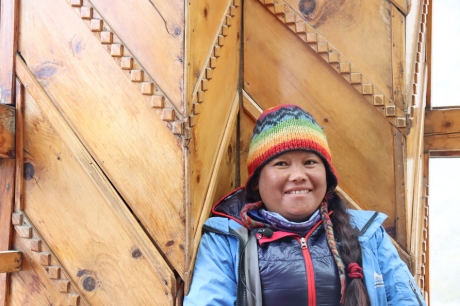Women move mountains
Supporting inspiring mountain women as they overcome discrimination, livelihood disruptions and climate challenges to carve out new futures
For many cultures, mountains recall spirituality and the divine. With majestic peaks piercing clouds and touching the sky, it is easy to make a connection between mountains and a higher power. For the millions of people around the world who amble through their forests or scale their summits, there is perhaps also an element of that, seeking a restorative force in being elevated from the land and surrounded by nature. For the people who live yearlong in the mountains, however, daily thoughts often veer to the more practical: an internet connection for example.
Trekking and Mountain Tourism
Supporting the women who support mountains


Comments are closed.